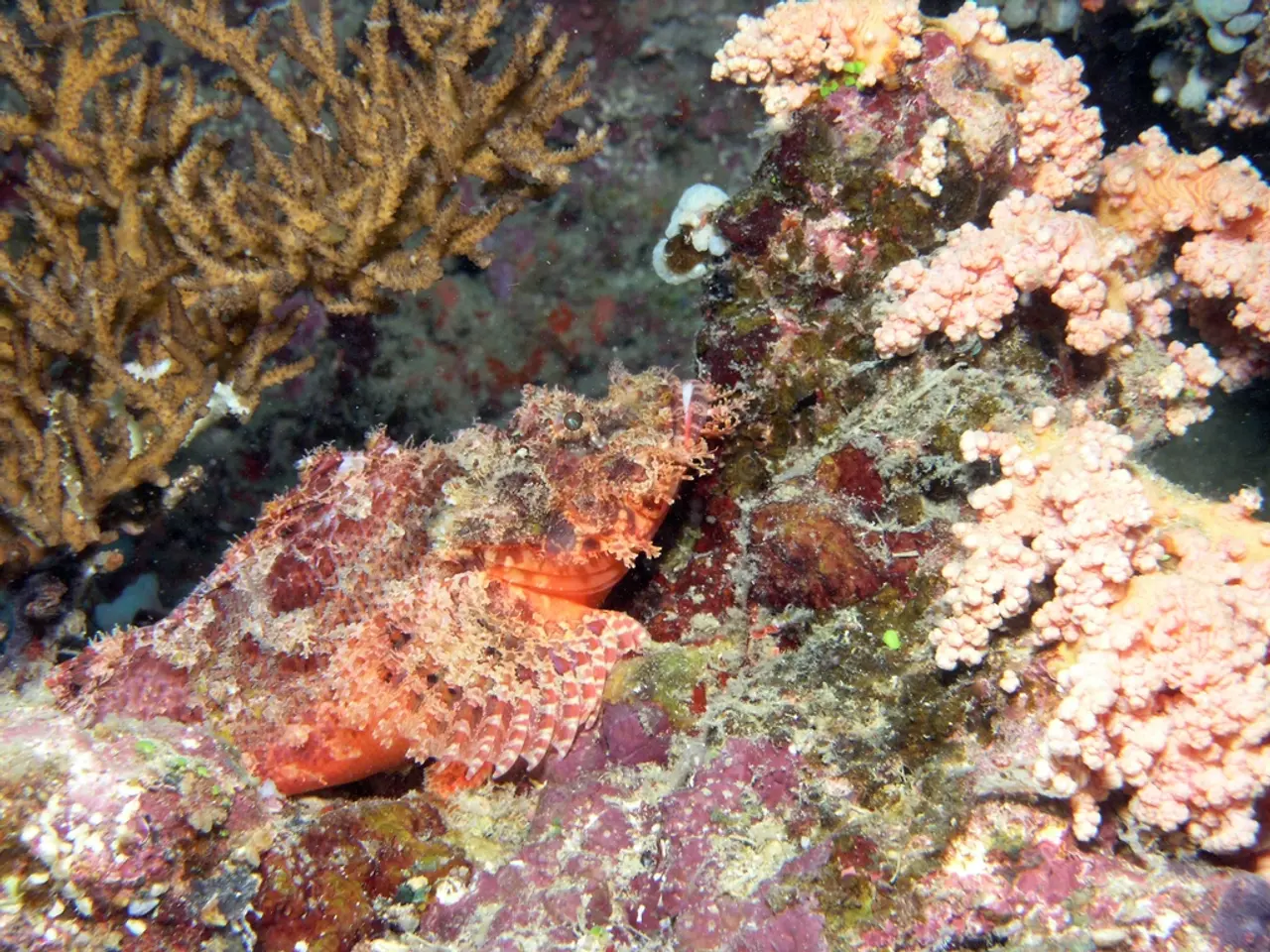Shifting Perspectives on Marine Economics
The world's financial institutions are taking steps towards a healthier ocean, with the 2025 Ocean Investment Protocol offering a practical roadmap for managing ocean-related risks and unlocking investment opportunities that support SDG 14, "Life Below Water." Claudio de Sanctis, Head of Private Bank and Member of the Management Board at Deutsche Bank, emphasizes the importance of financial innovation in supporting ocean health.
The priorities of the Ocean Panel, an international group of leaders, include managing seafood production sustainably, mitigating climate change, stemming biodiversity loss, rebuilding economies from climate and ecosystem shocks, and adopting holistic ocean governance. Fisheries sustain 600 million people, mostly in developing countries, making their sustainable management crucial.
Recent developments include the Clean Oceans Initiative 2.0, a multilateral initiative involving major public development banks committing to reduce plastic pollution with a financing target of €3 billion ($3.4 billion) for 2026-2030. This initiative has already mobilized €4 billion ahead of schedule for projects improving wastewater treatment, solid waste management, and flood protection in multiple countries.
The marine biotechnology market is projected to reach US$6.4 billion by 2025, offering potential for sustainable ocean projects. The ocean may contain three times more marine species than currently identified, providing vast opportunities for research and conservation.
The UN High Seas Treaty, ratified by 50 countries, aims to manage the ocean holistically. The treaty, along with the Sustainable Blue Economy Finance Principles (2018) and the 2025 Ocean Investment Protocol, guide financial institutions to invest in ocean sustainability.
However, challenges remain, including scaling ocean projects, scarcity of investment-ready proposals, data gaps, and the need to bring more private sector involvement beyond traditional "blue finance" actors. The momentum towards embedding ocean finance into mainstream financial markets is growing but requires sustained government signals, regulatory frameworks, and storytelling to widen engagement.
Notable recent efforts in the wider market include a collaboration between an environmental organization and a major global insurance provider to develop reef insurance products. The Korean Ocean Business Corporation successfully issued a US$300 million blue-bond in April, demonstrating that investors respond to a convincing rationale for ocean-related investments.
The Asian Development Bank's Blue SEA Finance Hub aims to help Southeast Asian economies structure their blue-economy investments. The Nautilus Blue Guarantee Company, launched in March, offers guarantees for investments in six key blue-economy sectors.
Despite these challenges, progress in sustainable ocean finance is evident. These efforts contribute to reversing biodiversity loss, reducing pollution, and enabling resilient ocean economies. As more financial institutions embrace ocean sustainability, the future of our oceans looks brighter.
[1] 2025 Ocean Investment Protocol (https://www.oceaninvestmentprotocol.org/) [2] Clean Oceans Initiative 2.0 (https://www.adb.org/features/clean-oceans-initiative-20) [3] Sustainable Blue Economy Finance Principles (https://www.oceanpanel.org/sustainable-blue-economy-finance-principles) [5] The Ocean Panel (https://www.oceanpanel.org/)
- The 2025 Ocean Investment Protocol, a practical roadmap for managing ocean-related risks and unlocking investment opportunities that support SDG 14, is initiating steps towards a healthier ocean by guiding financial institutions to invest in ocean sustainability.
- Claudio de Sanctis, Head of Private Bank and Member of the Management Board at Deutsche Bank, underscores the significance of financial innovation in supporting ocean health as part of the priorities set by the Ocean Panel for managing seafood production sustainably, mitigating climate change, and stemming biodiversity loss.
- In the marine biotechnology market, which is projected to reach US$6.4 billion by 2025, vast opportunities for research and conservation lie in the unexplored marine species that may constitute three times more marine species than currently identified.
- The UN High Seas Treaty, ratified by 50 countries, emphasizes holistic ocean governance to manage the ocean and guide financial institutions to invest in ocean sustainability, alongside the Sustainable Blue Economy Finance Principles (2018) and the 2025 Ocean Investment Protocol.
- The Asian Development Bank's Blue SEA Finance Hub and the Nautilus Blue Guarantee Company, launched in March, are among recent efforts dedicated to helping Southeast Asian economies structure their blue-economy investments and offering guarantees for investments in six key blue-economy sectors, moving towards a brighter future for our oceans as more financial institutions embrace ocean sustainability.




